- IN THIS ARTICLE
Minimalist clothing brands bring a breath of fresh air to the rapid world of fashion, much like brands like COS, with their sleek, simple styles.
It’s more than just clothing brands and more like a lifestyle embracing your minimal fashion style.
This article spotlights these brands, showcasing their talent for crafting elegant, timeless pieces. Embracing clean cuts, soft colors, and responsible fashion practices, each brand we discuss is a nod to the minimalist charm.
Perfect for the contemporary woman who loves fashion that’s both stylish and straightforward, join us as we uncover these leading minimalist fashion labels.
Core Principles of Minimalist Fashion
Minimalist fashion thrives on simplicity and sophistication, embracing design principles that reflect clarity and functionality.
The clean lines in minimalist fashion create a seamless and timeless aesthetic, ensuring that each piece of clothing is versatile and can be worn on numerous occasions. Neutral colors dominate the palette, providing a calm and understated elegance that stands the test of time.
Minimal embellishments are a hallmark of this style, as the focus is on the clothing’s form and function rather than on extraneous details. The simplicity of the design allows the quality of the fabric and craftsmanship to shine through, making each piece a testament to the art of fashion.
Quality Over Quantity
In minimalist fashion, the emphasis is on investing in high-quality pieces that offer durability and longevity. Rather than filling a wardrobe with fleeting trends, the minimalist approach encourages thoughtful purchases of well-made items that will stand the test of time. These investment pieces, crafted with attention to detail and made from superior materials, offer a sustainable alternative to fast fashion. They are designed to be worn and cherished for years, creating a personal and meaningful wardrobe.
Lifestyle Choice
Adopting minimalist fashion is more than a style choice; it is a reflection of a lifestyle that values simplicity and intentionality. Living with less becomes a guiding principle, extending beyond the wardrobe to influence all areas of life. This conscious choice to simplify and focus on the essentials leads to a more mindful and deliberate way of living, fostering a sense of clarity and purpose.
Minimalist Fashion Trends
The current trends in minimalist fashion continue to celebrate neutral tones and simple lines. These elements contribute to the timeless and versatile nature of minimalist clothing, ensuring that each piece can be seamlessly integrated into any wardrobe. The focus on functional designs ensures that the clothing is not only stylish but also practical, meeting the needs of the modern woman.
Layering and Versatility
Layering plays a crucial role in minimalist fashion, adding depth and interest to an outfit while maintaining a simple aesthetic. This technique also enhances the versatility of a wardrobe, as pieces can be mixed and matched to create a variety of looks. The adaptability of minimalist fashion makes it a practical choice for women who desire a wardrobe that can transition effortlessly from one occasion to the next.
Subtle Accessories
In minimalist fashion, accessories are used to complement, not dominate, the overall look. Subtle and understated pieces add a touch of personality and finish to an outfit without overwhelming it. The focus remains on the clothing itself, with accessories serving as a thoughtful addition that enhances the minimalist aesthetic.
Top Minimalist Clothing Brands (2023)
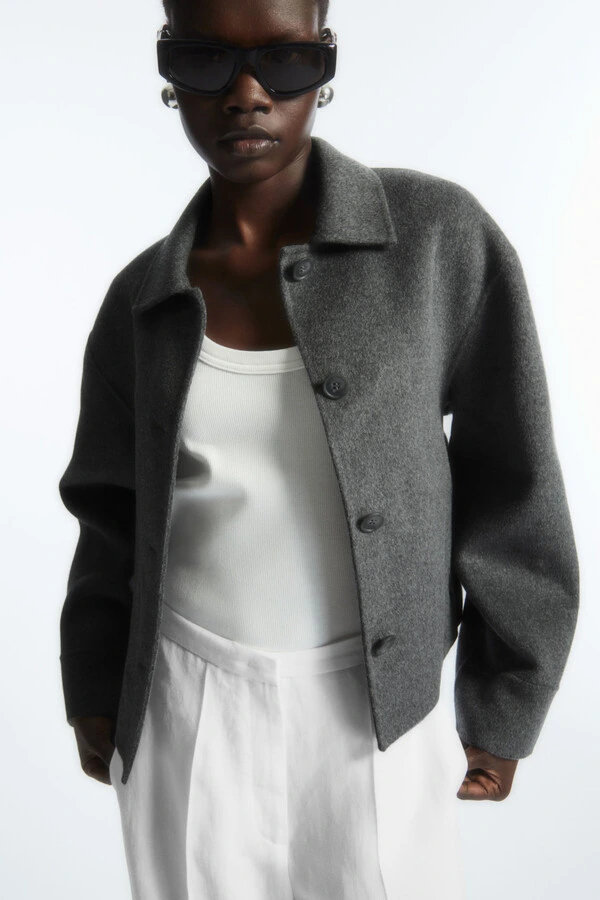
Made in: Turkey, Portugal, Romania, and China
Fabrics: Cotton, Wool, Silk, and Leather.
Price: $50 to $500
Brand Philosophy and Sustainability: COS champions contemporary minimalist design with a focus on craftsmanship and enduring styles. As a subsidiary of H&M, COS shares its parent company’s sustainability goals, including the use of renewable energy and water reduction in its production processes.
However, it is noted that the brand’s supply chain lacks widespread certification by labor standards, which would ensure worker rights and safety. COS is progressively incorporating eco-friendly materials and aims to use 100% sustainably sourced or recycled materials as part of its commitment to becoming a climate-positive brand.
For those interested in exploring brands like COS, it’s worth noting the brand’s global manufacturing footprint.
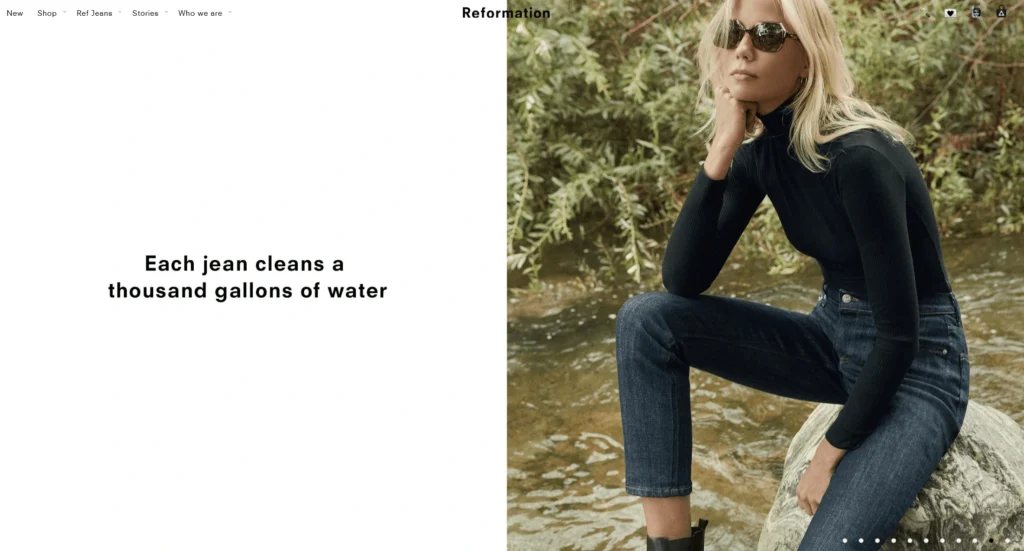
Made in: Los Angeles
Fabrics: Recycled fibers, TENCEL Lyocell, Organic Cotton, and Linen
Price: $80 to $330
Brand Philosophy and Sustainability: With a mission to deliver sustainable fashion widely, Reformation focuses on reducing environmental impact through the use of sustainable materials and practices like recycling and composting. Fair wages and healthy working conditions are prioritized for all workers.
The brand is transparent about the carbon and water footprint of its products, which is shared on their product pages. Production is demand-driven to minimize waste, aligning with their goal to become climate-positive and achieve zero waste.
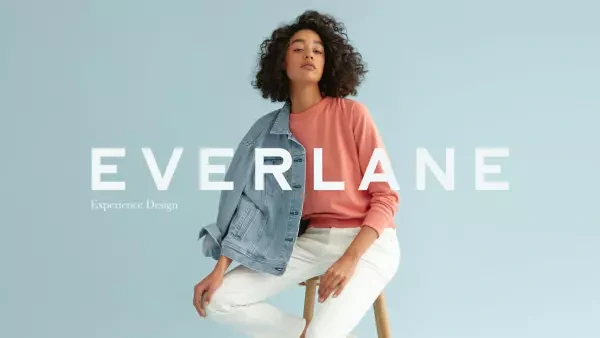
Made in: China, Vietnam, and Italy
Fabrics: Cotton, denim, silk, and cashmere
Price: $50–$230
Brand Philosophy and Sustainability: Embracing “radical transparency,” Everlane discloses the full costs behind their products. The brand is dedicated to sustainable material use, fabric innovation, and reducing environmental impact. Commitments include eliminating virgin plastics and reducing carbon emissions. Ethical factory partnerships and fair labor practices are central to their operations, aligning with their transparent approach to sharing progress and practices on their website.
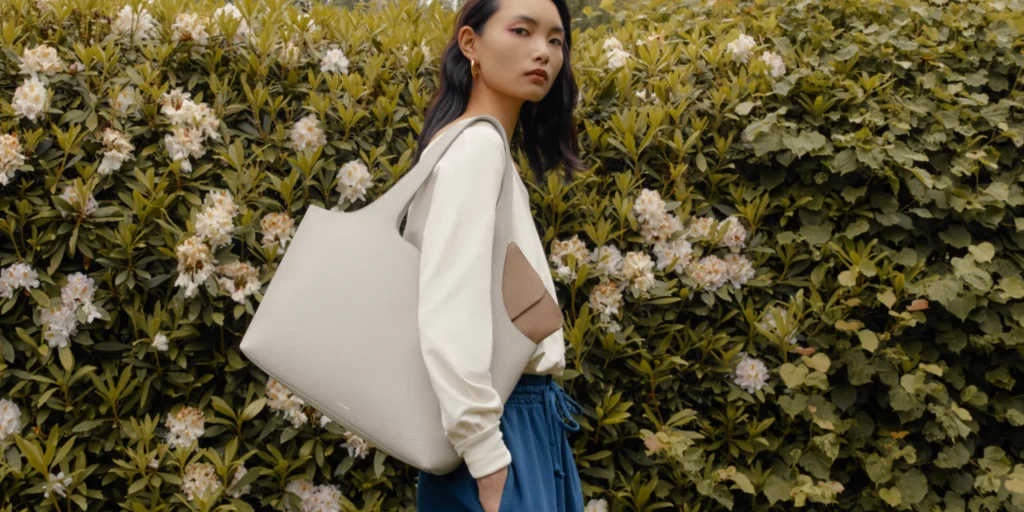
Made in: Peru, Italy, and China
Fabrics: Leather, Wool, Silk, and specially sourced Pima cotton and alpaca from Peru.
Price: 25 to $500
Brand Philosophy and Sustainability: Cuyana stands for fewer, better-quality pieces, advocating for timeless essentials and sustainable industry practices. They avoid using exotic animal materials and promote a circular economy through their product care, donation, and resell services, all while maintaining transparency by listing their manufacturers online.
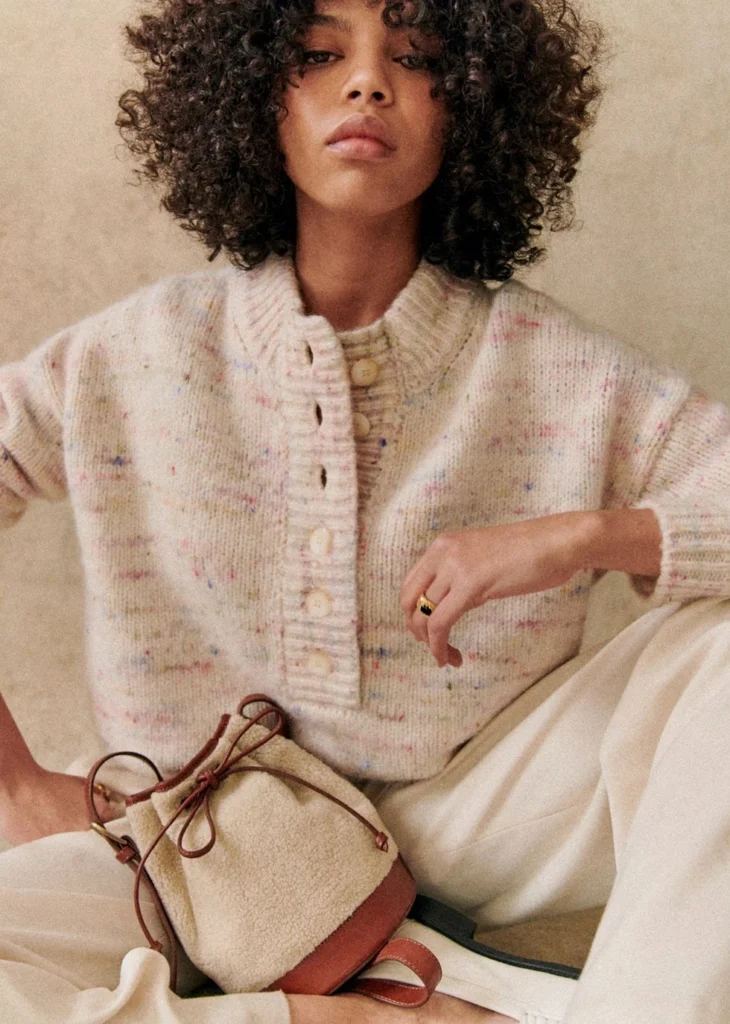
Made in: Peru, Italy, and China
Fabrics: Organic cotton, Recycled cashmere, and Tencel
Price: $50 and $305
Brand Philosophy and Sustainability: Sezane aims to create timeless, chic fashion while committing to sustainable practices. They have a dedicated “Green Team” and are involved in initiatives like the “Grand Collect” for clothing donations. With a goal to make 80% of their collections from eco-friendly materials by 2022, Sezane is also B Corp certified, reflecting their commitment to environmental and social responsibility.
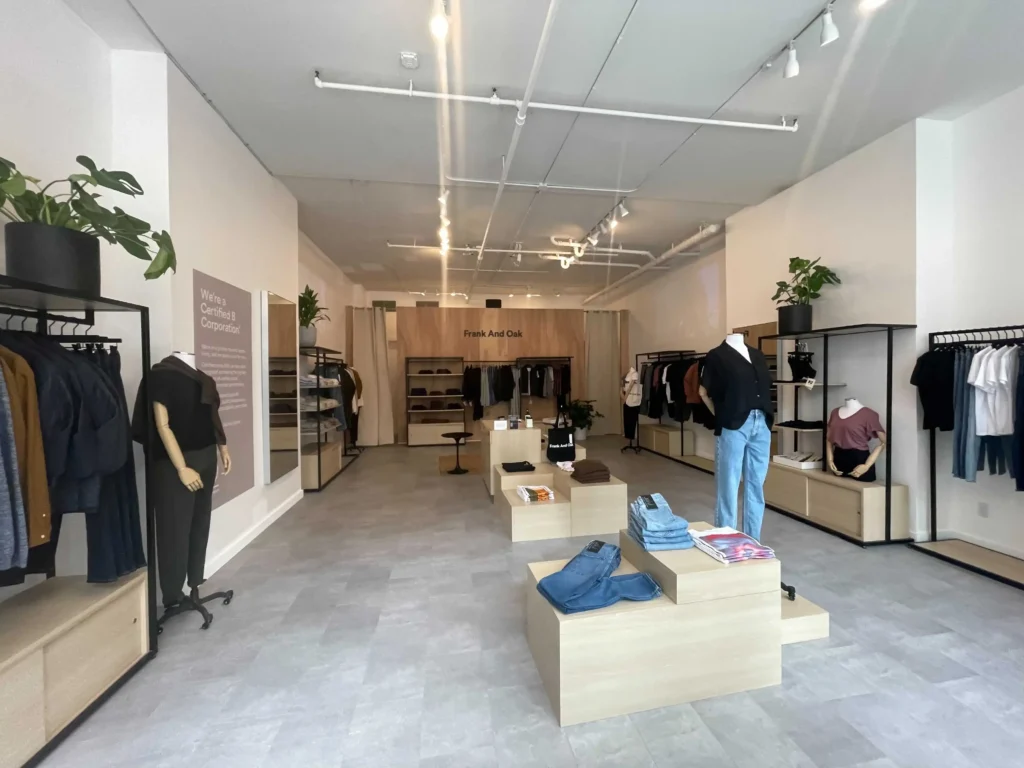
Made in: Montreal, Dubai, Portugal, Bangladesh, and China
Fabrics: Organic cotton, Recycled cashmere, and Tencel
Price: under $10 to over $1,000
Brand Philosophy and Sustainability: With a vision for durable, mindful products, Frank & Oak is committed to a healthier planet and sustainable progress. They are a Certified B Corporation, ensuring adherence to rigorous environmental and labor standards. Their “Lend & Learn” program is an innovative approach to educating customers on sustainable fashion.
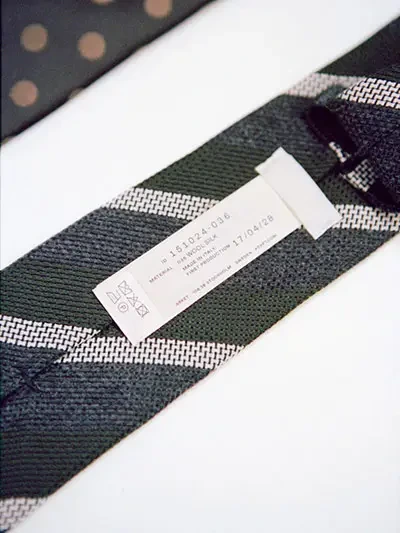
Made in: China, Turkey, Bangladesh, India, Uruguay, Slovenia, Hungary, Sweden, Italy, England, and Japan.
Fabrics: Organic cotton, Recycled cashmere, and Tencel
Price: $99 to over $399
Brand Philosophy and Sustainability: ARKET focuses on durable, long-lasting products, with a commitment to sustainable practices throughout their operations. They aim for complete sustainability in materials by 2030 and maintain transparency by listing their factories online.
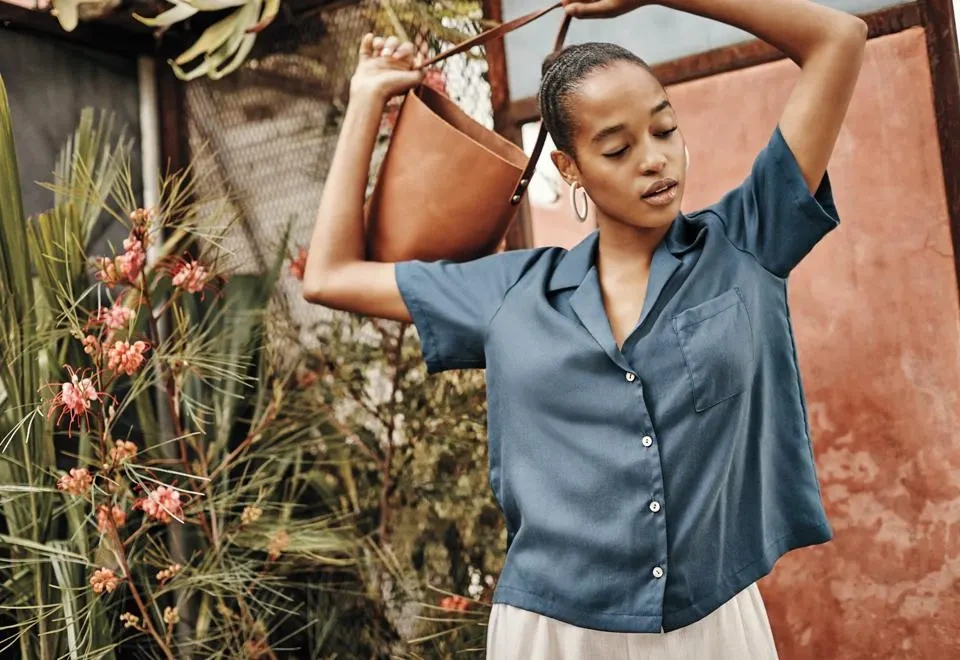
Made in: San Francisco, California.
Fabrics: Hemp, Tencel, Organic cotton, and Recycled polyester
Price: $30 to $500
Brand Philosophy and Sustainability: Amour Vert stands for “green love” in French, and this is reflected in their commitment to creating eco-friendly apparel. They aim to minimize environmental impact and have pledged to use only sustainable materials by 2025.
Additionally, they contribute to reforestation by planting a tree for every T-shirt sold. They are committed to transitioning to exclusively sustainable materials by 2025.
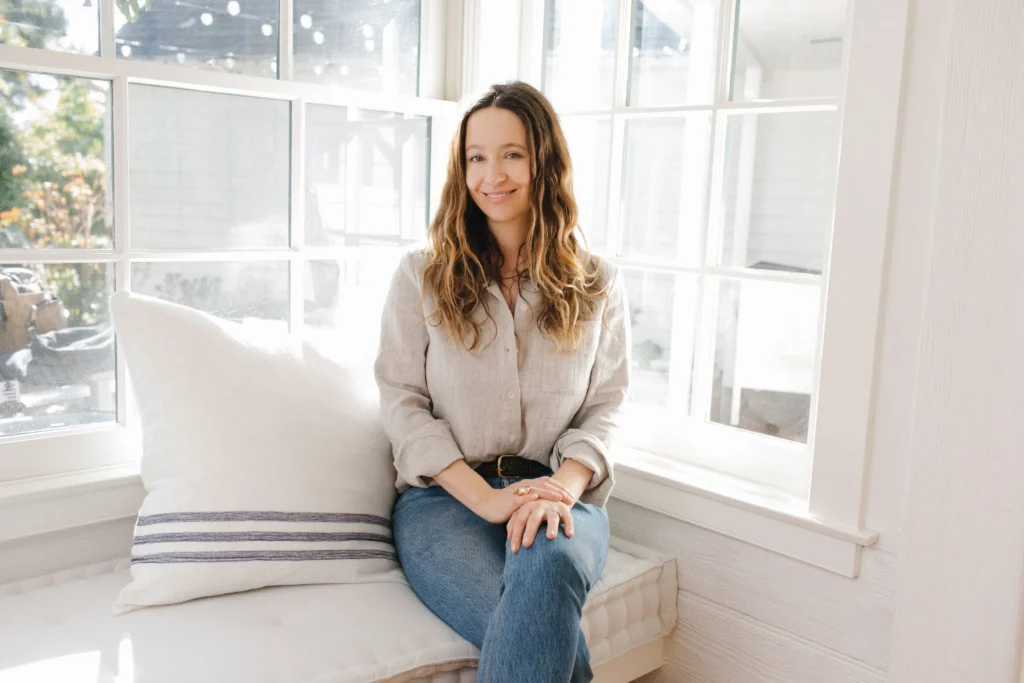
Made in: California, USA
Fabrics: Cashmere, Wool, Linen, Baby alpaca, Merino Wool, Polyamide
Price: $70 to $2,500
Brand Philosophy and Sustainability: Jenni Kayne is a California lifestyle brand that focuses on creating timeless, high-quality clothing and home goods. They are committed to using sustainable materials and ethical production practices, and have a goal to become a carbon-neutral company by 2025.
Jenni Kayne’s clothing is designed to be versatile and long-lasting, with a focus on quality construction and attention to detail. They also prioritize transparency and fair wages for their workers. However, the search results did not provide specific information on the sustainable practices followed by Jenni Kayne.
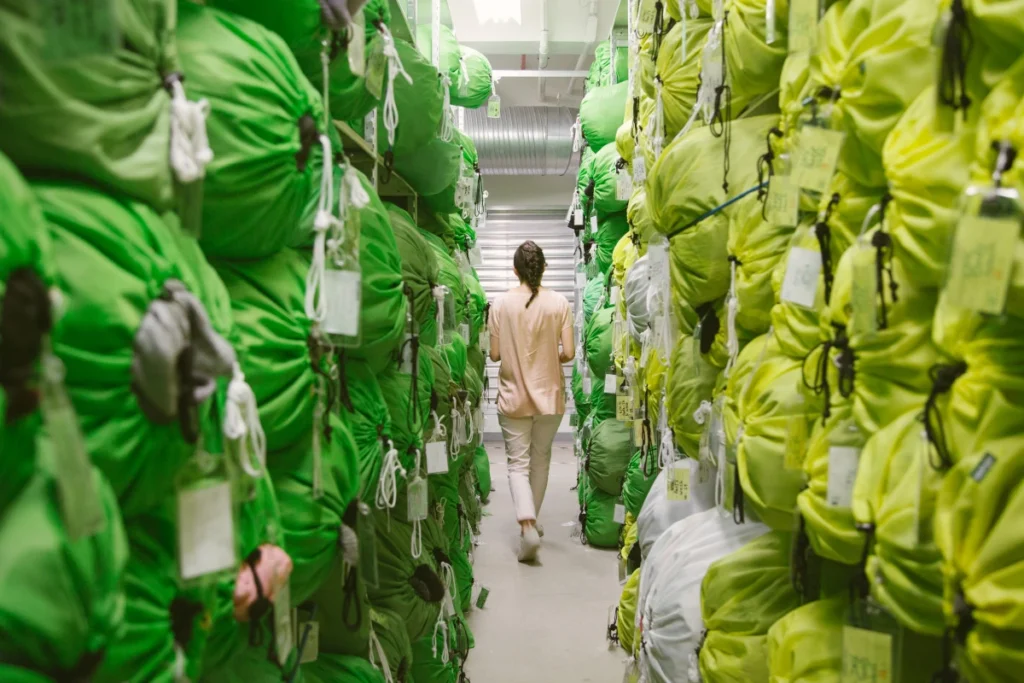
Made in: China
Fabrics: Organic cotton, linen, and recycled materials like polyester.
Price: $50 to $500
Brand Philosophy and Sustainability: Eileen Fisher’s ethos revolves around creating garments that are both timeless and sustainable, prioritizing the well-being of the planet and its inhabitants. They have pledged to be carbon positive by 2020 and to exclusively use sustainable materials by 2025. Their take-back program underscores their commitment to a circular fashion model.
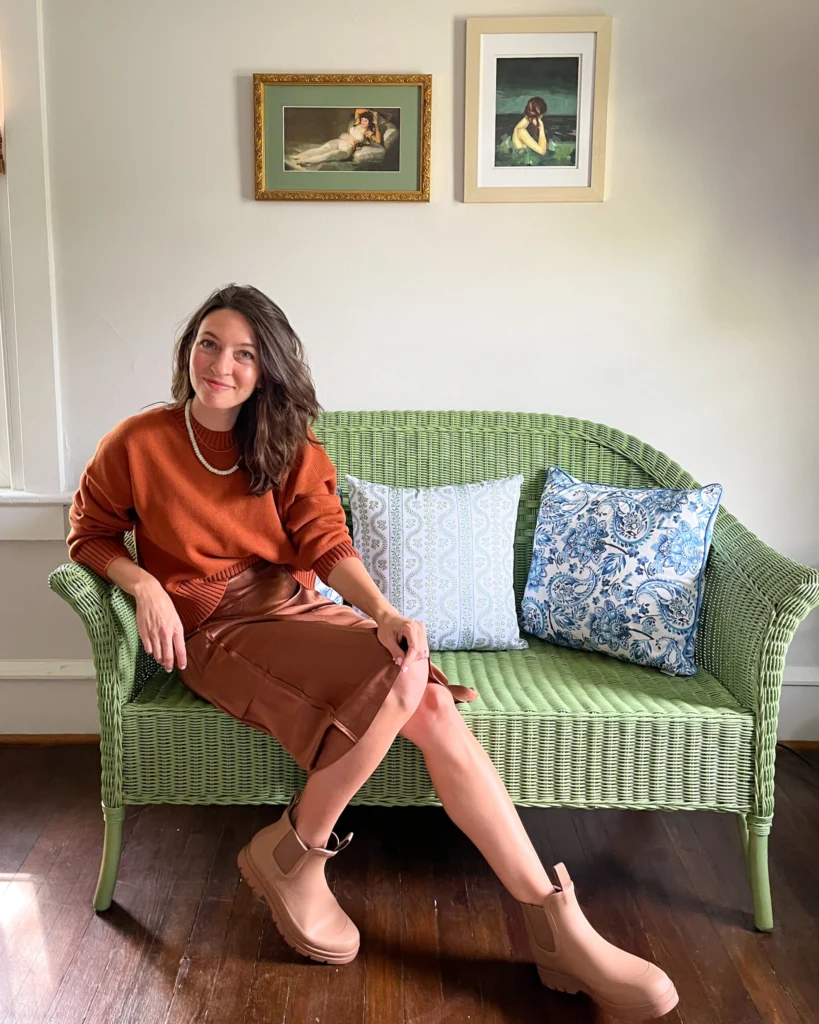
Made in: China
Fabrics: Cashmere, Alpaca wool, Organic cotton, Organic linen, and 100% recycled polyester.
Price: $15–$190
Brand Philosophy and Sustainability: Quince’s approach is to deliver sustainably made, high-quality goods at affordable prices by cutting out middlemen and reducing supply chain costs. They are committed to transitioning to entirely sustainable materials by 2025 and have a take-back program for recycling.

Made in: Toronto, Canada
Fabrics: Organic cotton, Tencel, and recycled polyester.
Price: $16–$270
Brand Philosophy and Sustainability: Encircled’s ethos revolves around creating versatile, sustainable clothing with a focus on ethical production and material sourcing. They aim for complete sustainability by 2025 and are a Certified B Corporation, ensuring high social and environmental standards.
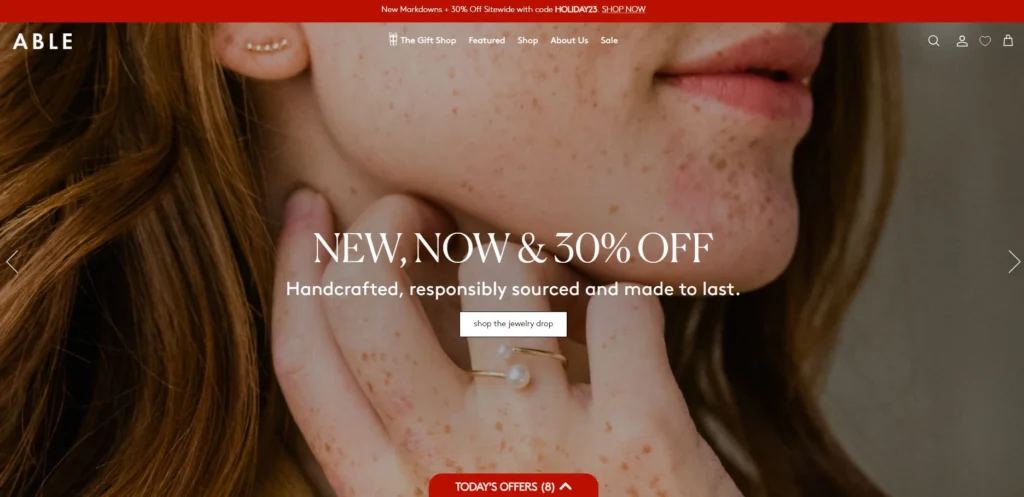
Made in: Ethiopia, Mexico
Fabrics: Organic cotton, Linen, and Tencel, Recycled polyester and cotton
Price: $50–$250
Brand Philosophy and Sustainability: ABLE is centered on creating products that not only look good, but also promote the empowerment of women. They are dedicated to ethical production, transparency, fair labor practices, and sustainable material use.
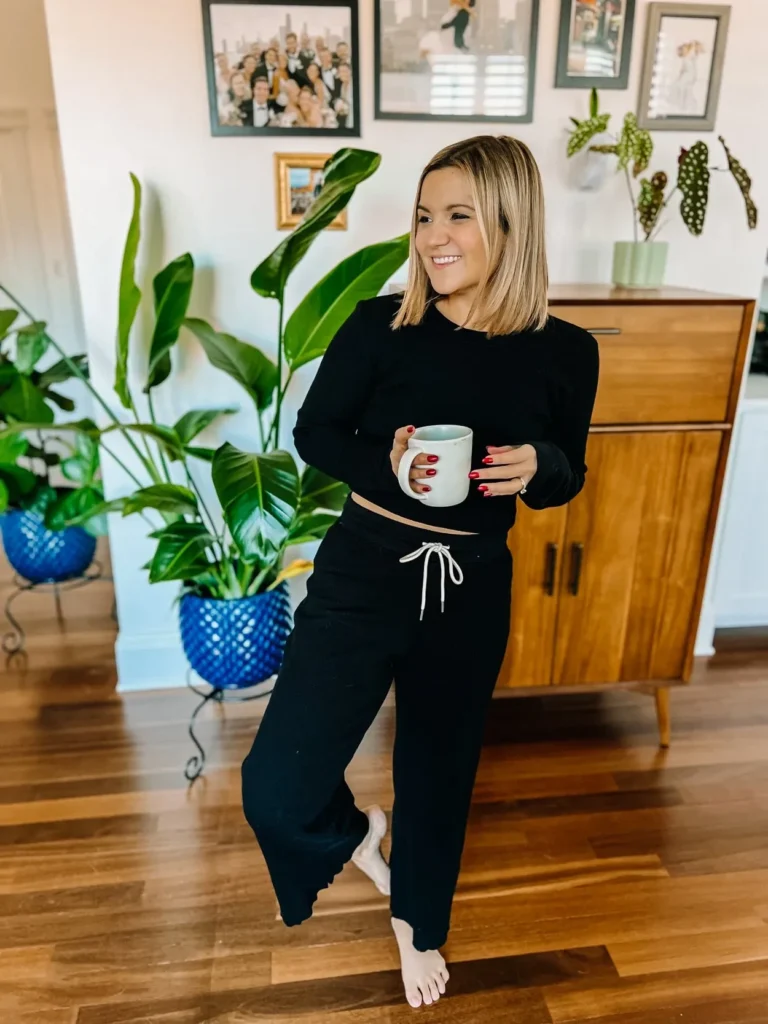
Made in: Los Angeles, California
Fabrics: Organic cotton, Tencel, and recycled polyester
Price: $15–$188
Brand Philosophy and Sustainability: The brand’s philosophy centers on creating clean, comfortable, and environmentally safe clothing. They focus on transparency, ethical production, and fostering local community partnerships to support Los Angeles garment workers and reduce emissions.
Conclusion
So, we’re at the end of our little adventure into minimalist clothing brands. What a ride, right? These brands are totally redefining what fashion means. They’re not just making clothes.
They’re crafting a revolution with their focus on the basics, good quality, simplicity, and caring for our planet. When we pick these brands, we’re not just picking out a dress or a shirt. We’re picking a philosophy, a way of life that cherishes lasting beauty over here-today-gone-tomorrow fads.
It’s about elegance that stands the test of time and a nod to our planet’s health. These brands are showing us that yes, we can have our stylish cake and eat it too, sustainably!
As we keep strutting down the fashion runway of life, these minimalist brands are like our trusty old friends, reminding us that true style is timeless and thoughtful.
FAQ
What defines a minimalist clothing brand?
Minimalist clothing brands are characterized by their simple, clean designs, use of neutral colors, and focus on high-quality, sustainable materials.
Why choose minimalist fashion?
Choosing minimalist fashion means opting for timeless pieces over fast-changing trends, ensuring a sustainable and long-lasting wardrobe.
Can minimalist fashion be stylish?
Absolutely! Minimalist fashion is known for its elegant simplicity and timeless appeal, making it a stylish choice for any wardrobe.
How does minimalist fashion contribute to sustainability?
By focusing on quality over quantity and using eco-friendly materials, minimalist fashion promotes sustainable practices in the fashion industry.



